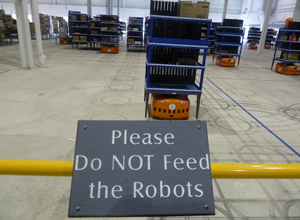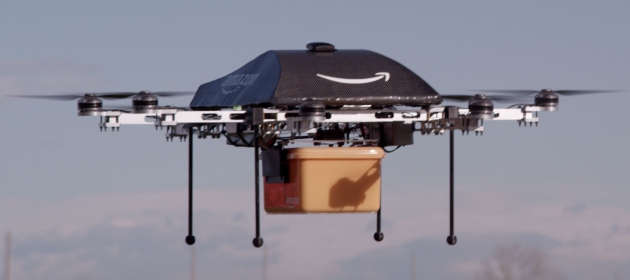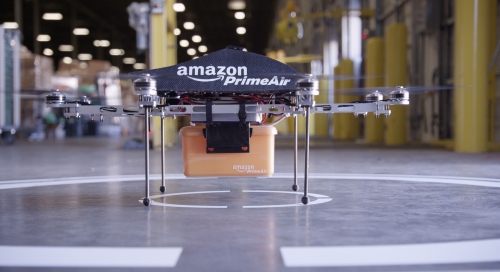On the weekend preceding 2 December 2013, Amazon CEO Jeff Bezos announced plans to use Unmanned Aerial Vehicles – aka drones – to deliver packages, thereby cutting delivery times to 30 minutes.
Like many people, I thought this was a great idea.
Amazon’s plan to use drones is self-admittedly futuristic.
Retail Systems Research, Reuters and many others have given several reasons why delivery-drones might not get off the ground.
All 4 are rubbish reasons RT @ReutersIndia: The 4 reasons why Amazon won’t be shipping by drone anytime soon http://t.co/GKPsvQSoBZ by @daxe
— Ketharaman Swaminathan (@s_ketharaman) December 4, 2013
But I don’t agree with then.
In my opinion, Amazon can make the R&D investments and pull off the political lobbying required to overcome the obstacles in front of drone delivery.
If it wishes to, that is.
This is where I’ve a slightly different take on Amazon’s announcement, timed as it was a day or two before 2 December (The significance of this date will become obvious pretty soon in case you haven’t already figured it out).
 When I thought back to the video about PrimeAir – as Amazon has branded the drone delivery service – I remember seeing an orange jumpsuited man placing the package into a conveyor belt in a warehouse, or fulfillment center as Amazon calls it.
When I thought back to the video about PrimeAir – as Amazon has branded the drone delivery service – I remember seeing an orange jumpsuited man placing the package into a conveyor belt in a warehouse, or fulfillment center as Amazon calls it.
I was wondering, why isn’t a robot doing the grunt work?
After all, robots have been used in warehouses for over a decade. I remember a leading Swiss retailer had bought my company’s ERP package in circa 2000 and asked us to build an interface between our inventory software and its existing robotic system. In fact, ease of integration was one of the main reasons why the company chose our product. But, I digress.
The point is, if Amazon were seriously planning to deploy drones in a futuristic scenario like delivery, it would use robots in a tried-and-tested, present use case like picking and packing. A drive for operational excellence will include grabbing such a low hanging fruit for cost reduction as robots, especially since the etailer operates on wafer-thin margins.
That’s when it struck me that there’s nothing cool about using robots in warehouses. Whereas showing a delivery drone is a major ‘aha’ moment. And it worked.
Timed to coincide with Cyber Monday, the drone delivery announcement got Amazon on the proverbial front page of print, TV and online media on the busiest day of online shopping in the year. No amount of ad spend can buy that kind of publicity.
Nothing wrong with a PR stunt from time to time but credit where credit is due: A stroke of marketing genius shouldn’t be confused for execution innovation.

